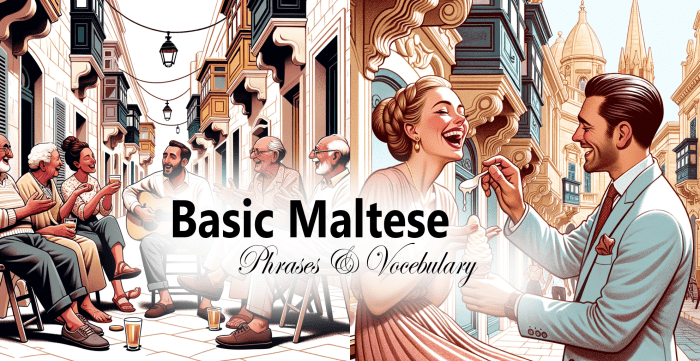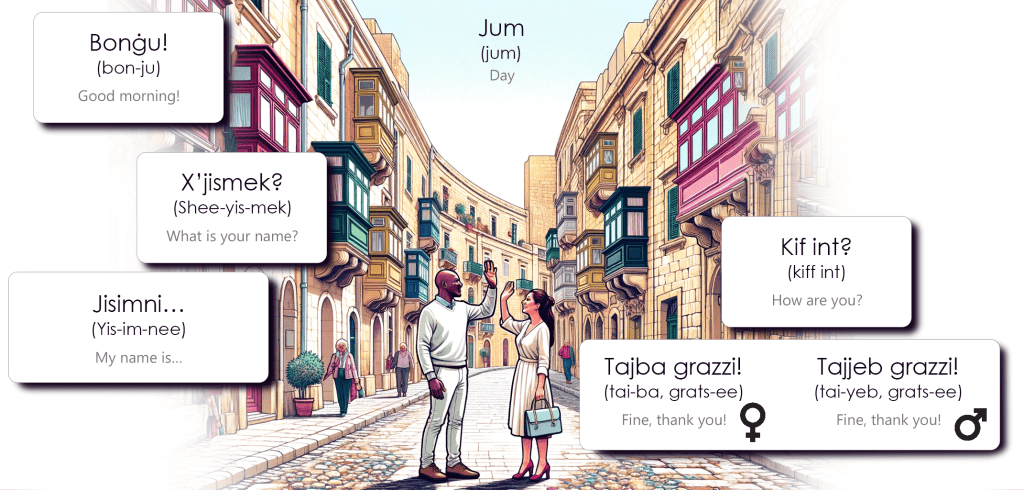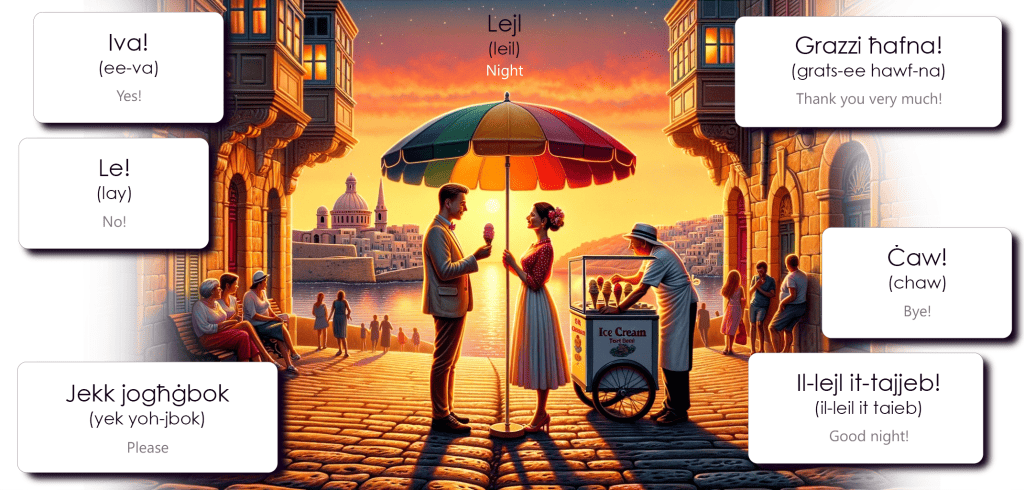
Bongu Malta – basics of the Maltese phrases and vocabulary
While Malta proudly holds a bilingual status, true immersion and genuine interactions with the locals often come from a basic understanding of Maltese. This language, deeply rooted in history and blended with influences from different cultures, offers an unparalleled linguistic journey. For travelers and language aficionados eager to delve into Malta’s effervescent culture, a foundation in Maltese is indispensable. This article will guide you through fundamental Maltese phrases and vocabulary, setting you on a path to linguistic discovery. Personally, whenever I’ve made an effort, albeit with my limited Maltese vocabulary, it’s always been met with appreciative smiles from the locals.
A few facts
- Origins: The foundation of Maltese lies in the Sicilian-Arabic dialect that was spoken in Sicily and Malta between the 9th and 14th centuries. This is why Maltese is often categorized as a Semitic language, related to Arabic.
- European Influences: Over time, and especially during periods of European rule, Maltese absorbed a considerable amount of vocabulary from Italian, Sicilian, and English. As a result, while its grammatical and syntactic structures remain Semitic, a significant portion of its vocabulary is derived from Romance and Germanic sources.
- Alphabet: The Maltese alphabet consists of 30 letters, based on the Latin script with some additions to cater to specific Maltese sounds.
- Unique Status: Maltese is the only Semitic language written in the Latin script and is also the European Union’s only Semitic official language.
- Modern Usage: Today, Maltese is spoken by the entire population of Malta (approximately 500,000 people) and is used in all facets of daily life, from official government communications to media and daily conversation.
Basics of the Maltese phrases and vocabulary
Greetings and Pleasantries
- Hello: “Bongu”
- Goodbye: “Ċaw”
- Please: “Jekk jogħġbok”
- Thank you: “Grazzi”
- Good night: “Il-lejl it-tajjeb”
- I don’t understand: “Ma nifhimx”
- Yes: “Iva”
- No: “Le”

Common Questions
- How are you?: “Kif int?”
- What is your name?: “X’jismek?”
- Where is…?: “Fejn hu…?”
- How much is this?: “Kemm hu dan?”

Essential Vocabulary
- Water: “Ilma”
- Food: “Ikel”
- Friend: “Ħabib/a”
- Day: “Jum”
- Night: “Lejl”

Engaging with locals in their native tongue, no matter how basic, is a mark of respect and a step towards authentic cultural immersion. As you venture through Malta, armed with these phrases, you’ll find that language is not just about communication; it’s a bridge to understanding, shared smiles, and unforgettable memories.
Useful resources:
Hungry for more articles about Malta? Check out my other posts here.
